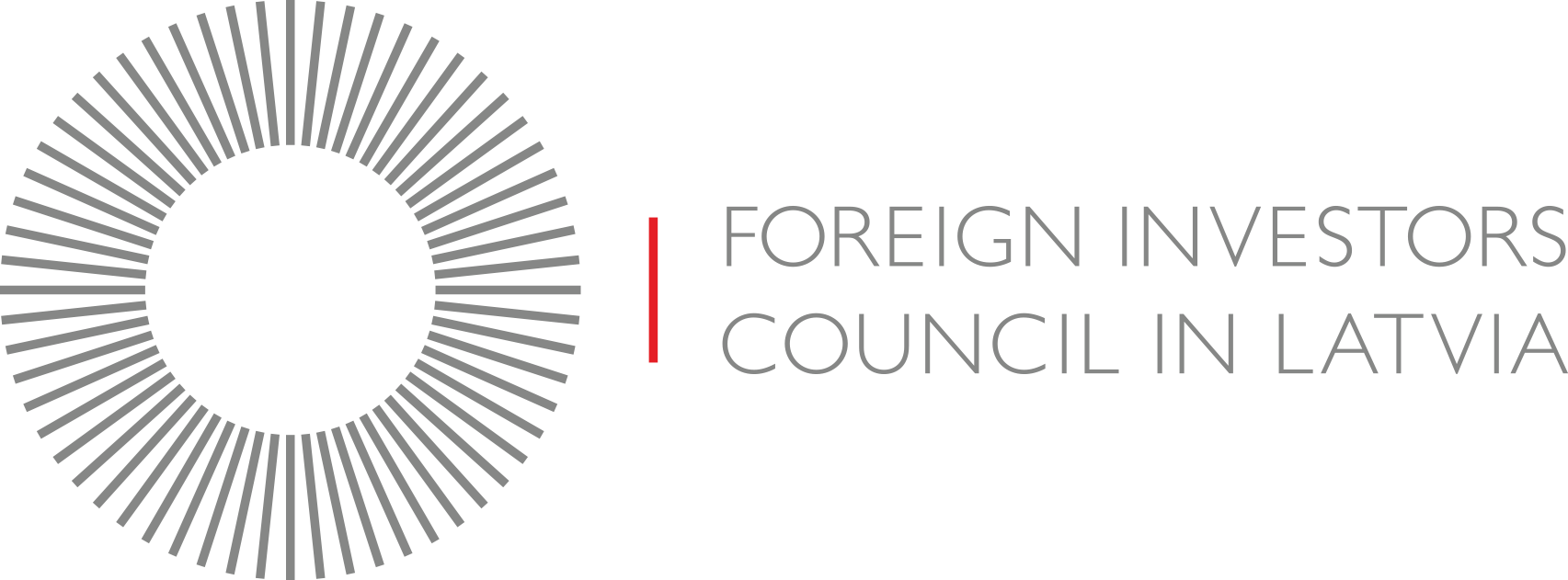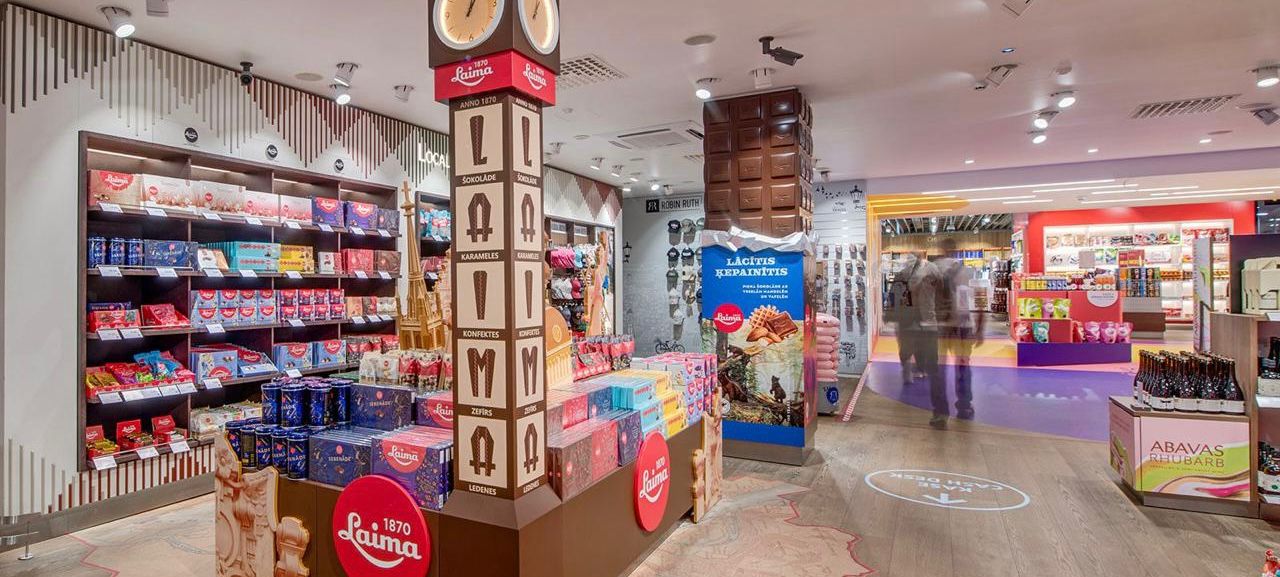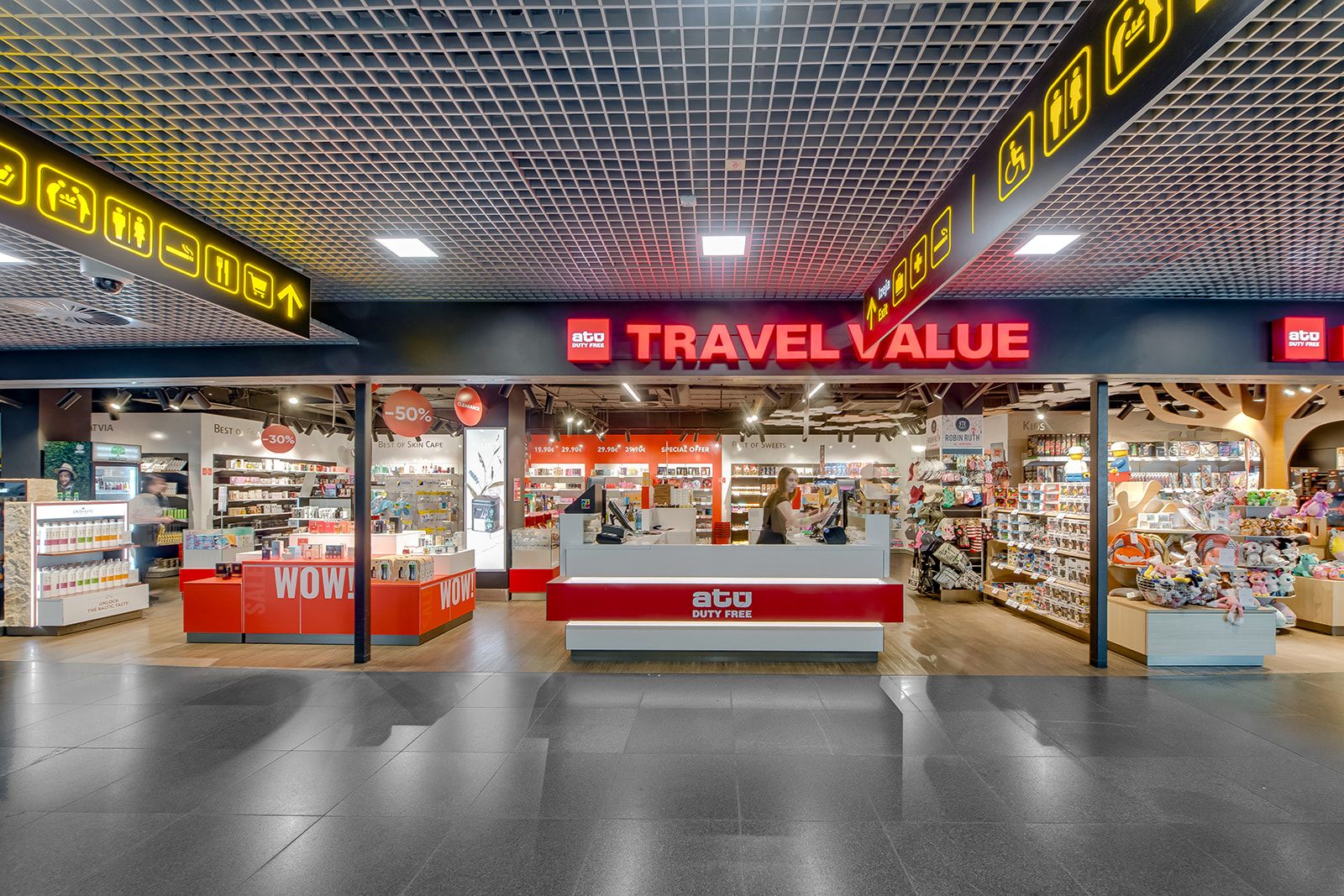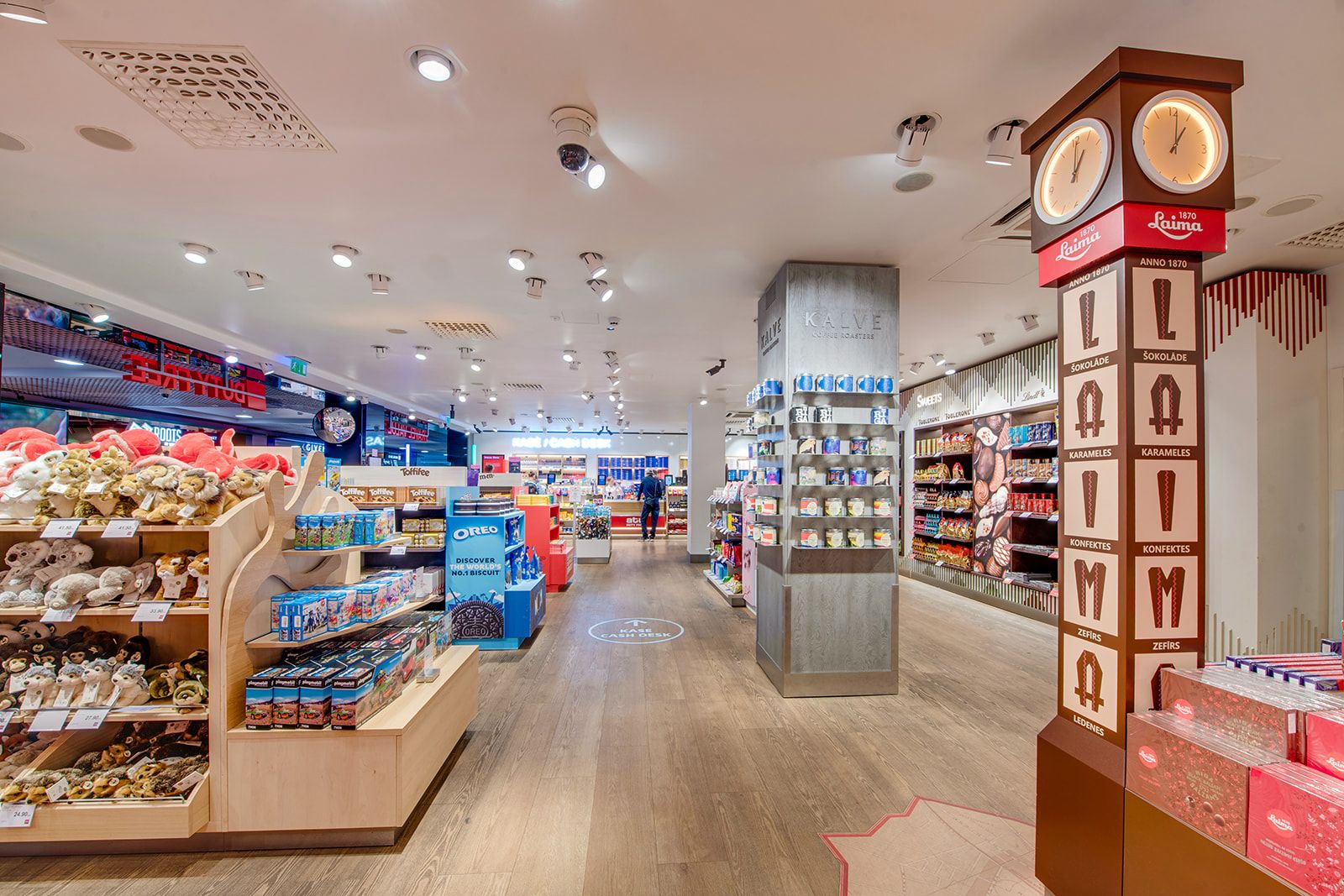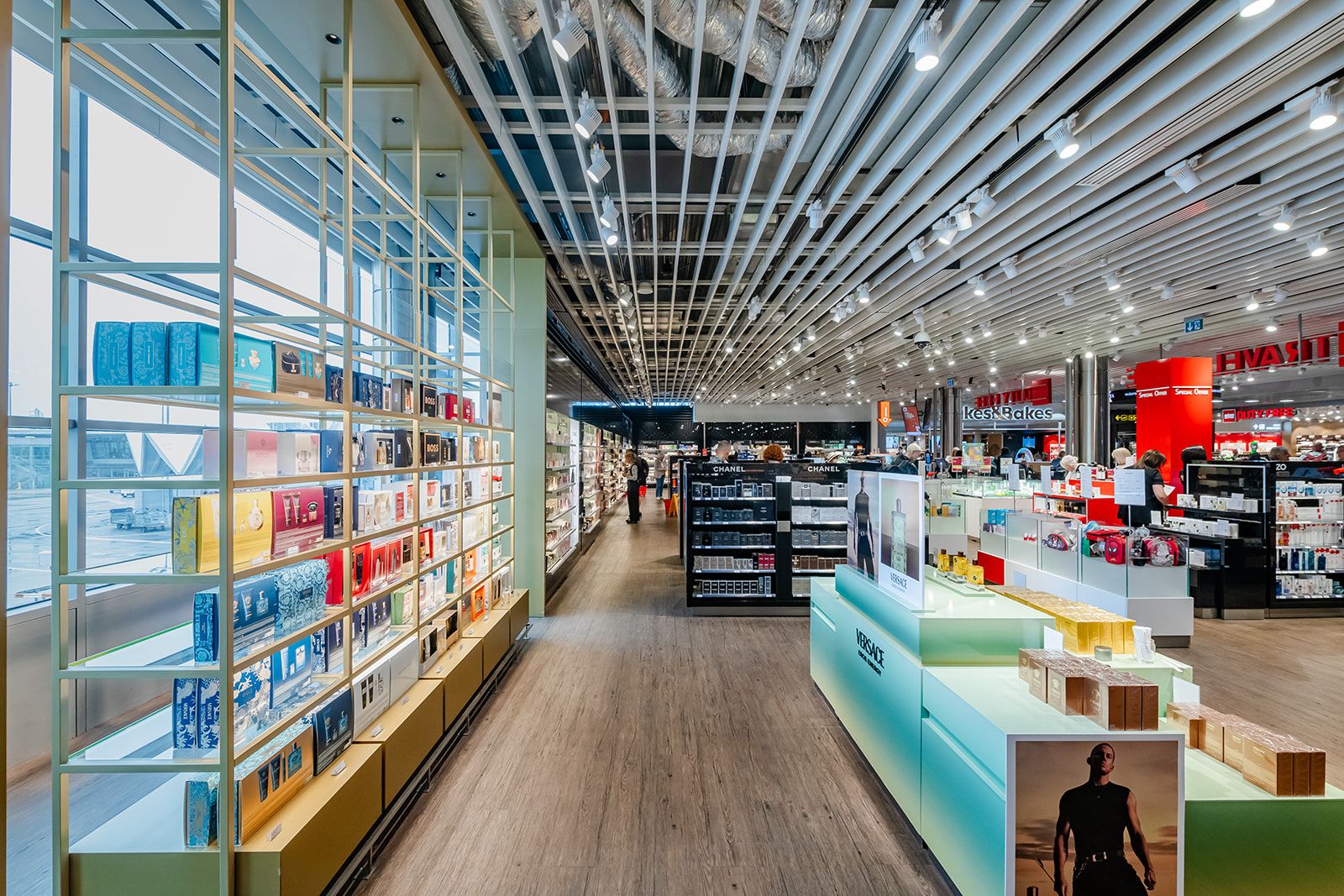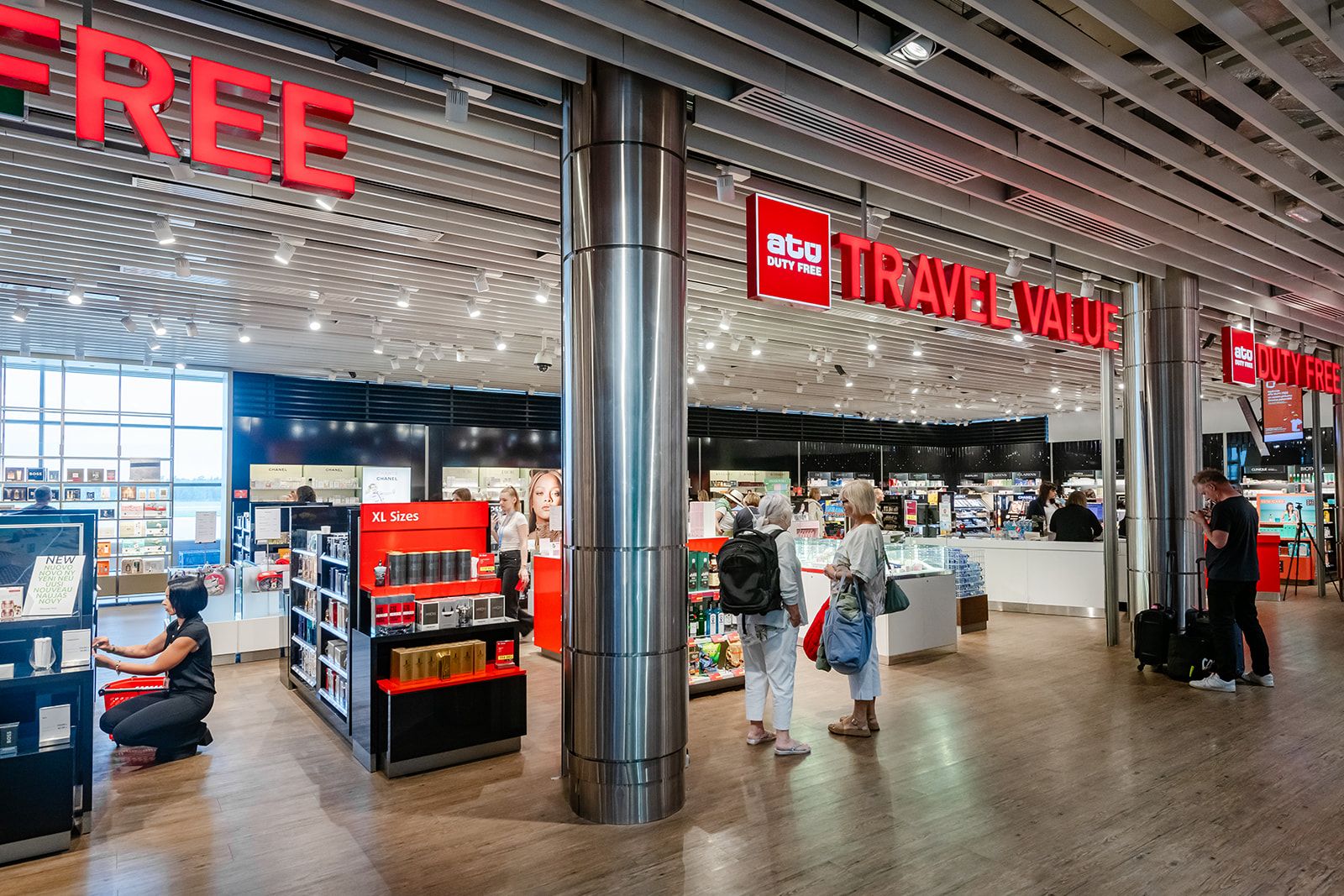The foreign investors play an important role in boosting Latvia’s economic development, as job providers (recruiting 27% of the total workforce in the country), taxpayers (accounting for 45% of total taxes paid), innovation drivers, providers of capital, infrastructure, and expertise. However, their role in supporting local entrepreneurs and fostering the development of strategic initiatives is frequently overlooked. The current article highlights two FICIL members – TAV Latvia and ATU Duty Free, which operate at Riga Airport, illustrating how foreign investors seek to foster Latvia’s economic development, including through local business support, ambitious projects, international trade and investment initiatives.
TAV Latvia has been operating the commercial areas at Riga Airport Terminals, which is the hub of Air Baltic, the national flag carrier airline in Latvia, since 2011. ATU Duty Free, a subsidiary of TAV Airports, acts as the sole duty-free operator at Riga International Airport. As a result, both companies play a critical role in the management and service provision at Riga Airport. Their efforts have contributed to achieving an important milestone this year – Riga Airport has reached the third level in the global customer experience accreditation programme, becoming the only airport in the Baltic States with such a high service rating.[1] Over the years, Riga International Airport, at its forefront, has shown remarkable resilience and innovation, despite the pressures of COVID-19 and the Russia-Ukraine conflict.
The director of operations at ATU Duty Free, Tamer Cigeroglu, and the country director of TAV Latvia, Hakan Uzunosmanoglu, aspire to see Riga Airport as a leading aviation hub for the three Baltic States, connected to airside&landside accessible sleeping lounge airport hotel, business lounge by hotel rooms, event and promotion venues, offices and, travel retail &duty free shops and food and beverage premises where both local and foreign products are provided, and where customers and employees enjoy comfortable experience and working conditions. To realise that vision, Tamer and Hakan have been launching and supporting various Riga Airport’s development projects, suggesting investment opportunities in business-government forums, attracting foreign investors to Latvia, sponsoring the creation of Riga Airport’s 50th anniversary book and Riga Aviation Forum, developing a family friendly social corners and a pleasant coworking space for airport passengers and staff members.
Since 2011, Hakan and Tamer have been contributing to stronger business relations between Latvia and Turkey and between Latvia and the United States. Recently, Hakan has become a co-founder and president of the Latvian Turkish Chamber of Commerce and a co-founder & Riga City Official representative of DTIK (The World Turkish Business Council), aiming to give a stronger boost to investment and trade between the two countries. Meanwhile, Tamer became one of the board members of American Chamber of Commerce in Latvia, the Latvian Chamber of Commerce and Industry, and the Latvian Aviation Association and Society, seeking to contribute to the local community and to the development of Riga Airport.
Both ATU Duty Free and TAV Latvia provide free-of-charge spaces at Riga Airport for small Latvian companies to sell their products and promote local produce. Among these companies are Tutas Lietas, Plūkt, Lat Eko Food (with vending machines that sell “Rūdolfs” bio products), and many others. Hakan and Tamer try to ensure that the spaces provided to local companies are as visible as possible for visitors and staff to ensure maximum impact on sales and marketing. When asked about the motivation to support the Latvian companies, Hakan and Tamer admitted that they are heavily invested in Latvia not only financially, but emotionally. “I am a Turkish citizen and permanent resident of the USA, and have been living in many countries throughout my life, but I can proudly call Latvia my home. I want Latvia to prosper and I try to do everything I can to help”, – Tamer Cigeroglu. In view of Hakan, both foreign and local companies are having a joint mission – they work to stimulate economic development of Latvia, attract investors and tourists to Latvia, therefore joining forces and supporting each other is a normal business practice. In addition, in their view, local and hand-made products that are sold at Riga Airport could serve as a good souvenier, leaving warm memories about Latvia and thereby encouraging to visit the country again.
Besides support local companies, TAV Latvia and TAV Group Companies in Riga Airport( BTA Food&Beverage Operator, Havas Ground Handling Operator, TAV Operation Services Business Lounge Operator) and together with another group company ATU Duty Free have been donating resources for various social initiatives. For example, they contributed a 30,000 EUR donation to Ziedot.lv for the project “Atbalsts 21. novembra traģēdijā cietušajiem” to support victims of the Maxima collapse, partnered with the Latvian NGO “Palīdzēsim viens otram” with a 100,000 EUR contribution to support Ukrainian families moving to Latvia by providing food, medicine, transportation, accommodation, and clothing. In addition, they have supported various organizations with yearly donations (such as the Latvian Foster Family Association), placed donation boxes at their premises, and organized holiday packages for families and children in need via different organizations.
While discussing factors that may influence the future potential of Riga Airport and Latvia more broadly, Tamer and Hakan emphasized the importance of a long-term economic development strategy and a strong international profile for the country. Such elements could help showcase investment opportunities, highlight the advantages of doing business in Latvia and encourage greater alignment among various government plans and priorities. Both Hakan and Tamer noted that Latvia offers much more than just a low-cost workforce or a convenient geographic location for doing business. In their view, the country offers good infrastructure, has a strong medical and IT sectors, as well as, provides numerous business opportunities for green energy and other industries. Without a coordinated message and vision, Latvia risks being overlooked in favour of more assertive regional players. In addition, Tamer and Hakan pointed to the unfinished and famously challenging construction of Rail Baltica, which can be seen from the windows at Riga Airport, negatively affecting the country’s reputation and stalling the development of the Airport area.
In view of Tamer and Hakan, there is an urgent need for stronger regional cooperation. While competition between the Baltic States exists, it does not favour any country, and working in silos, especially in the areas of defence, infrastructure, and energy, is not prudent and efficient. In addition, Tamer and Hakan highlighted the call from foreign investors for the Latvian government to take a more proactive role in advancing strategic objectives, while at the same time maintaining a balanced approach in its cooperation with international partners.[2]
The efforts of ATU Duty Free and TAV Latvia highlight that foreign investors truly believe in Latvia’s potential and are ready to help the government and local businesses in both developing and implementing bold and promising ideas. By combining international and local experience, resources, talent, and creativity, Latvia has excellent growth prospects. What is needed now is a clear long-term vision that positions Latvia as an innovative, competitive, and welcoming country for investment and openness to new opportunities through regional collaboration.
[1] https://www.riga-airport.com/en/news/riga-airport-reaches-higher-level-global-customer-experience-accreditation-programme
[2] https://www.ficil.lv/wp-content/uploads/2025/05/FICIL-Sentiment-Index-report_2024-1.pdf
